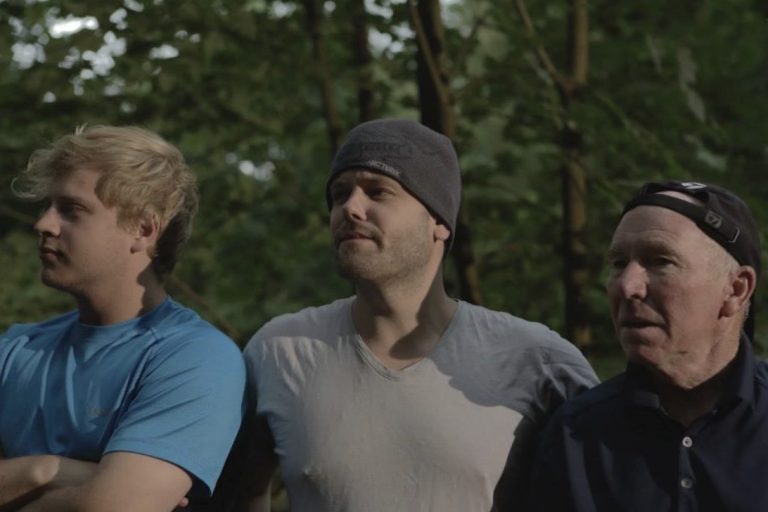Mark Murphy, director of The Untitled, The Crypt, Casanova’s Love Letters, Awaiting and The Comedian’s Guide to Survival, serves as company director for Solar Productions. Under the leadership of Mark Murphy, Solar Productions has established itself as a leading television and film production company creating unique and bespoke videos for a diverse field of clients, ranging from cinema and television to the corporate world.
This article will look at the streaming revolution and how film directors are evolving in response to changing consumer preferences.
The world of filmmaking is ever-changing, be it through the emergence of new genre trends or the advancement of filmmaking technology. Moviemaking is an industry that is often unpredictable. However, the introduction of streaming services has marked the biggest transformation in the history of film. Streaming platforms like Amazon and Netflix have turned the industry on its head, particularly when it comes to the monetisation of films.
In the past, production companies relied on two rounds of film revenue: the first generated by cinema ticket sales and the second by the sale of DVDs (and VHS before those). This monetisation method proved extremely effective for a very long time, providing production companies with a lucrative second round of revenue – with moviemakers often earning an equivalent amount from DVD sales as that generated by cinema ticket sales. Then came streaming, consigning the DVD to history, just like the VHS.
Streaming services like Netflix and Amazon have had a catastrophic impact on DVD sales. However, from the production company’s perspective, they do present new revenue generating opportunities in the form of licensing fees.
It is undeniable that streaming services have changed the landscape of the film industry. From algorithms to release models and more, streaming platforms have changed the way viewers connect with content and what they define as cinema, placing power firmly in the hands of consumers in terms of deciding what they want from their moviegoing experiences.
While this metamorphosis has been overwhelmingly positive in many aspects, facilitating the discovery of new talent, some members of the film industry are less enthusiastic about the rise of the streaming platforms, with titans like Martin Scorsese voicing concerns about the negative impact of streaming services on the movie-going experience.
When Netflix launched its streaming service in 2007, Michigan State University film professor Carleen Hsu admits she felt very uncertain. Like Scorsese, Hsu believes that media like film is something that is meant to be watched and experienced by an audience together. She points out that streaming services take that experience away from the theatre and away from what filmmakers intend.
According to a 2021 report by Statistica, as of May 2020, 62% of US adults subscribed to some form of streaming service. Carleen Hsu, a professional filmmaker, maintains that going to a theatre means no distractions, with the audience completely focused, which is beneficial for filmmakers. However, she does concede that streaming has some positives such as democratising media consumption, which Hsu acknowledges is ‘a great thing’.
Faith Pan is an interdisciplinary humanities junior who uses Netflix and Disney+. She believes that streaming has become popular due to its flexibility and convenience. Pan says she prefers streaming because ‘it’s always there and available’, admitting that she is bad at keeping up with shows.
In the past, filmmakers could hit the jackpot through backend deals if their movie proved a big hit at the box office. However, moviemakers also faced the risk of being left substantially out of pocket if their production tanked. From the perspective of indie filmmakers, streaming services have helped to mitigate this risk by providing generous upfront payments in exchange for an exclusive online premiere under subscription-video-on-demand clause.
In terms of acquiring content, streaming platforms like Netflix and Amazon have two options. Firstly, they can buy film and content rights for productions that have already been made. However, a second, and increasingly popular option is to produce original content themselves.
Amazon and other streaming services often buy content from production companies, paying for a license to stream content on their platform. The exact numbers generated are usually a closely guarded secret, and though likely to be large, many production companies became concerned that they might be losing potential earnings. As a result, some of the biggest players have launched their own streaming services. Today, Disney/Fox streams through Disney+, Warner Bros through HBO Max and Universal through Peacock. In this way, each large company owns its own slice of the streaming pie, triggering a ‘streaming war’ as they vie for attention and jostle for a bigger share of audiences and revenue.
Having established itself as a streaming champion, producing the most movies since 2020, Netflix has inspired other studios to start ramping up production for their direct-to-streaming platforms. While watching a movie at the cinema is a one-off experience, for the same price as a cinema ticket consumers can pay for a month’s subscription to a streaming platform, providing them with unlimited access to countless titles that they can watch whenever and wherever they choose.
